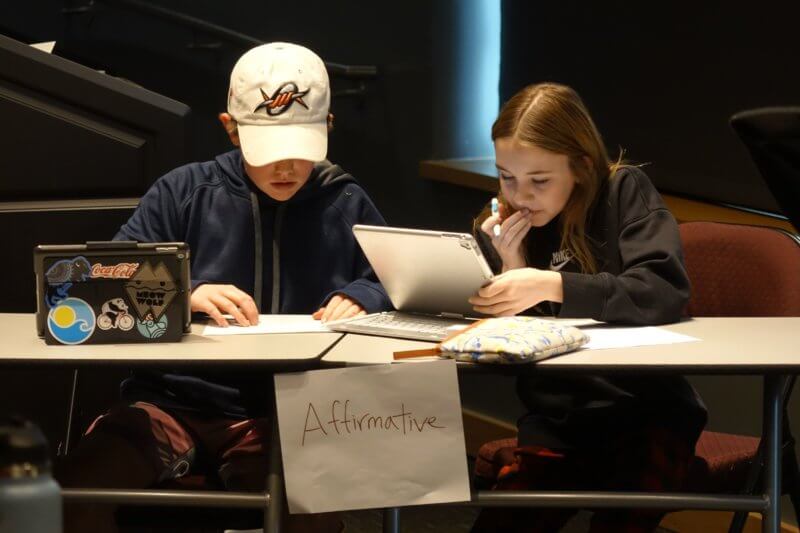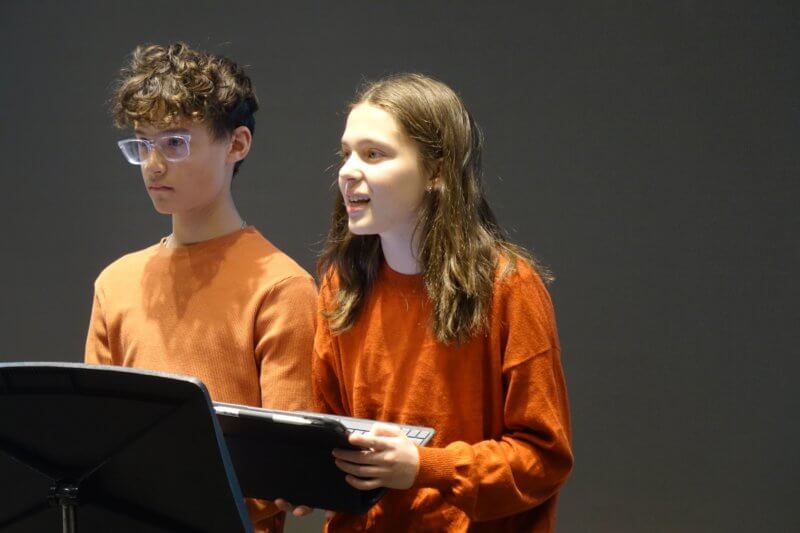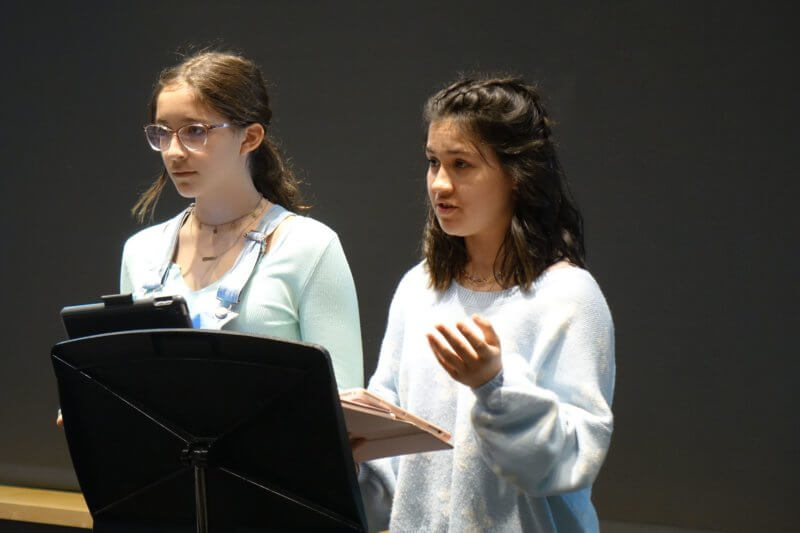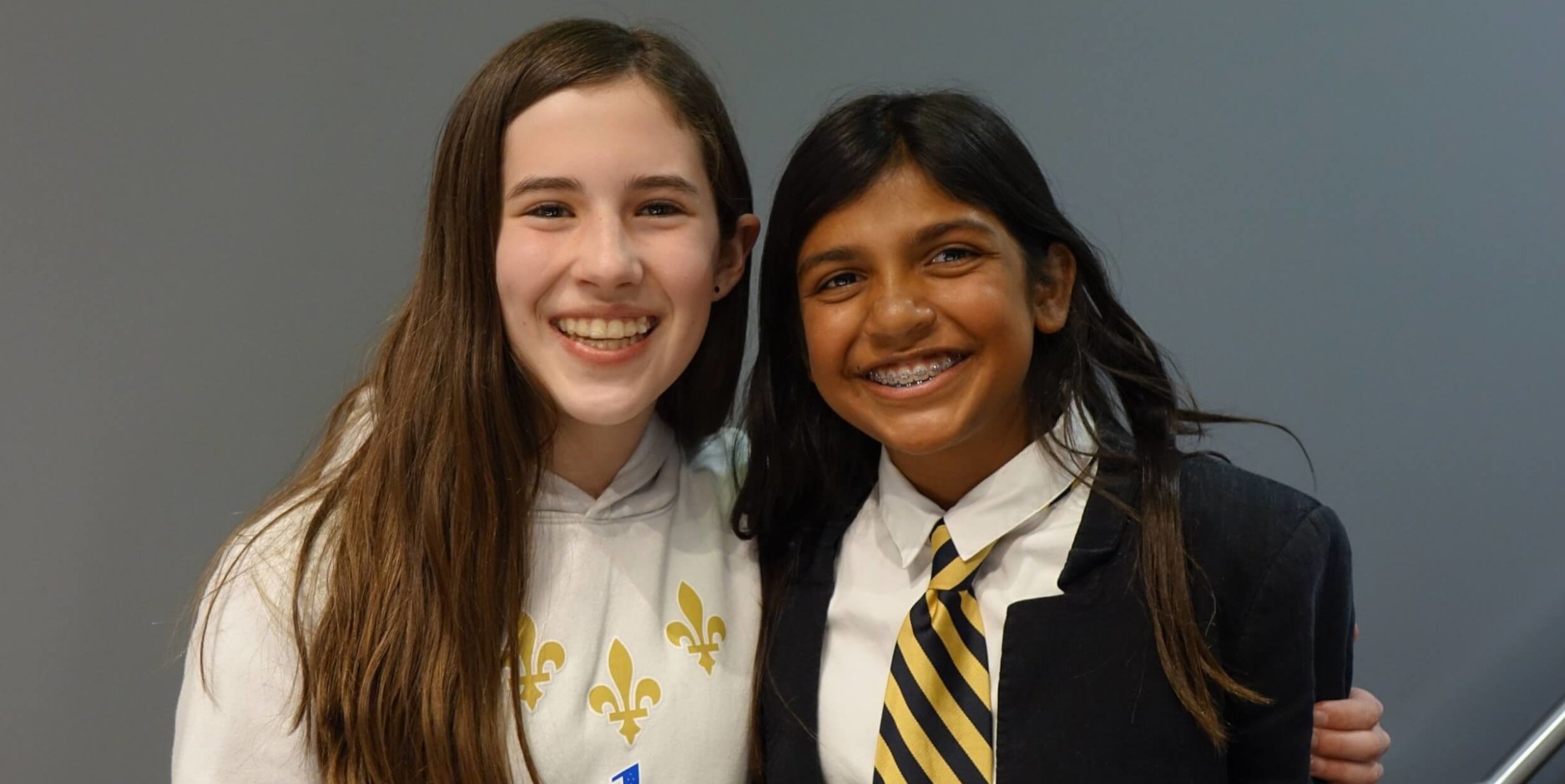Colorado Academy Seventh Graders do not shy away from complex or controversial subject matter. When voting on this year’s Critical Thinking class debate topic, students selected Artificial Intelligence, with the pointed question, “Is AI a threat to humanity?”
Through their research, students discovered many different ways that artificial intelligence can harm, manipulate, and control humans, but they also uncovered myriad AI applications that have made our lives easier.
“My sense is that AI interests Middle School students because it feels highly relevant to their lives, and they will be increasingly living with its impacts throughout their lifetimes,” says Forbes Cone, who manages the Debate unit—one of CA’s defining Seventh Grade experiences.
Critical Thinking teacher Elisa Stolar agrees, “Students were excited to learn about all the ways that artificial intelligence is integrated into their everyday lives, many of which they had not recognized previously. It was also fascinating to watch them weigh the costs and the benefits of developing technology that can itself grow smarter and more intelligent.”
Every CA Seventh Grader is paired with a partner to prepare their arguments, create reasoning, and compile evidence. In the beginning, students tend to be intimidated by this unit. But, Stolar says, they adeptly build on their skills—whether they are great at thinking on their feet, a meticulous researcher, an observant listener, or someone who can make anything sound convincing—and realize they are debaters. To add to the challenge, the teams must be able to convincingly argue both sides, because the position they take in the debate is decided by a coin flip.
After several rounds of debates in Critical Thinking class, the four teams remaining make it to the final rounds, where they compete in front of their Middle School peers. Judging is scored by older students—former debate winners themselves—who award points for the team’s presentation, cross examination, rebuttal, and closing argument.
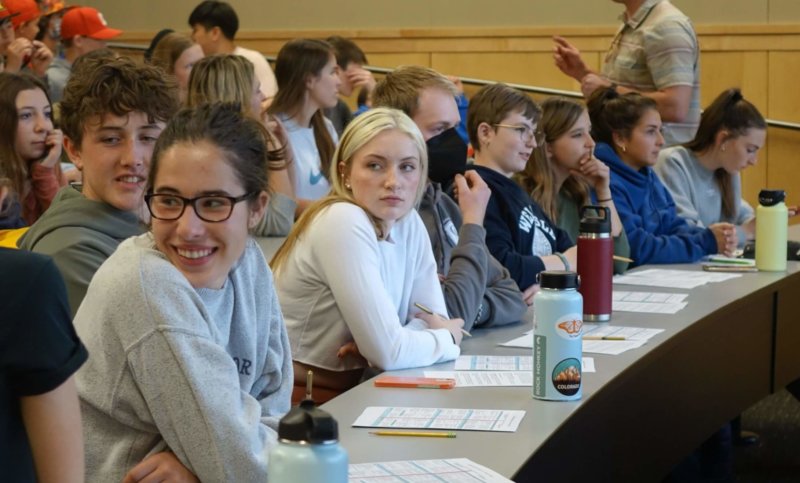
This year’s victors, Skye Leach and Brielle Burkett, both appreciated the relevancy and depth of arguing for and against artificial Intelligence.
“The debate topic was really intriguing,” Skye says. “Even adults don’t know the answer to whether AI is a threat to humanity. I thought that the topic left a lot of room for creative arguments and strong cross-examinations.”
Brielle agrees, “Artificial intelligence may seem like a complicated subject, but Colorado Academy students can take on more than the average student. With a bit of research and literary play—and of course the help of an incredible partner—you can create a fantastically persuasive argument.”
Skye and Brielle felt their strongest argument for the affirmative position was that AI doesn’t have a conscience, and, because of its ability to learn from its environment, it is a mirror of the worst of society. Their top negative argument was a tie between AI can perform jobs too dangerous for humans, and AI helps the environment because of its ability to plan ahead.
Beyond the actual arguments, Skye implemented savvy debate tactics to outscore the competition.
“I learned to comb through my opponent’s arguments with a fine-toothed comb, which allowed me to pick apart their arguments in a cross-examination,” she says. “Additionally, if I acted confident in the beginning, my opponents got more nervous, which lowered their performances.”
“I love watching them figure out how to wordsmith their broader message to have the greatest impact on the judges,” Stolar says. “This year, I was particularly impressed by the pithy ways that they came up with to convey the impact of artificial intelligence on humanity.”
Middle School Principal Bill Wolf-Tinsman notes that debating is an excellent way for young people to develop 21st Century Skills and fine tune their beliefs. “This is such a great thinking exercise for our Middle School students,” he says. “Each learns research skills, how to evaluate evidence, make an ARE (Argument, Reasoning, and Evidence) sandwich, rebut others’ arguments thoughtfully, and speak persuasively in front of one’s peers.”
“My overall experience was incredible,” Brielle says. “In the future, I want to join a debate team and use many of the skills I’ve learned.”
View more photos of the 2022 Seventh Grade Debate.
